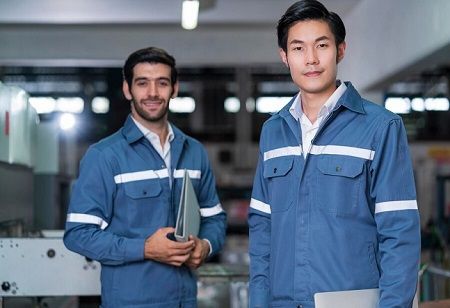Mechanical-to-electrical energy conversion presents a promising avenue for powering compact biomedical tools like pacemakers and drug delivery systems. Despite numerous proposals in recent years, achieving both high electrical output and devices that conform to the body has proven challenging.
Professor Lizhi Xu and their team at the University of Hong Kong have tackled this challenge by developing a highly efficient mechanoelectrical energy converter using hydrogels, a type of soft polymer material rich in water content. Their approach involves sandwiching an ion-loaded hydrogel between two electrodes to create an electric generator.
Their research, detailed in a publication titled "A high-current hydrogel generator with engineered mechanoionic asymmetry" in Nature Communications, focuses on leveraging structural and chemical asymmetry to amplify the separation of charges within the hydrogel. This asymmetry significantly boosts the electrical output of the hydrogel generators, which is crucial for powering miniaturized biomedical devices.
When mechanical compression is applied to the device, positively and negatively charged ions within the hydrogel move at different rates, creating a separation of electric charges that generates voltage and current usable by an external circuit. By incorporating asymmetric designs, the team achieved remarkable electrical output levels, surpassing those of other systems by a significant margin.
Hydrogels offer an advantage as body-conformal device structures due to their soft, flexible nature and biocompatibility. They can mimic the properties of biological tissues and conform to various shapes within the body. The study demonstrates the potential for using this technology in controlled drug release patches and suggests broader applications in biomedical devices such as pacemakers, health monitors, and VR/AR interfaces.
In summary, Professor Xu's team has developed a highly efficient mechanoelectrical energy converter using hydrogels, with asymmetric designs significantly enhancing electrical output. This innovation holds promise for powering various miniaturized biomedical devices while maintaining body-conformal properties.

